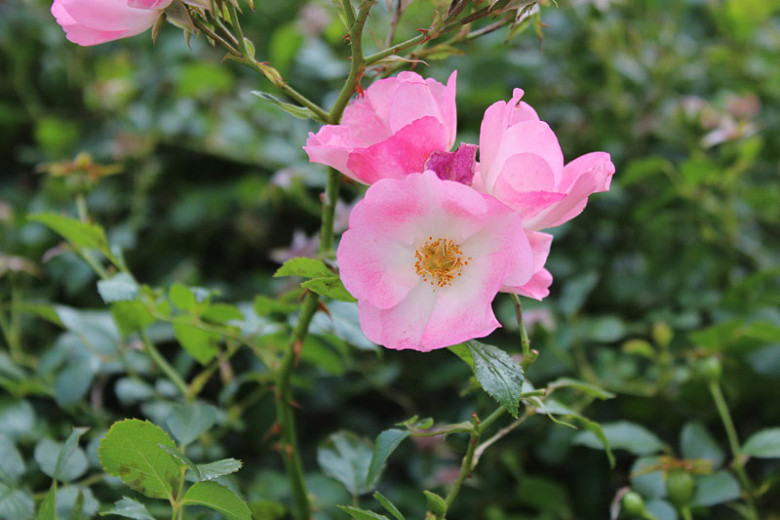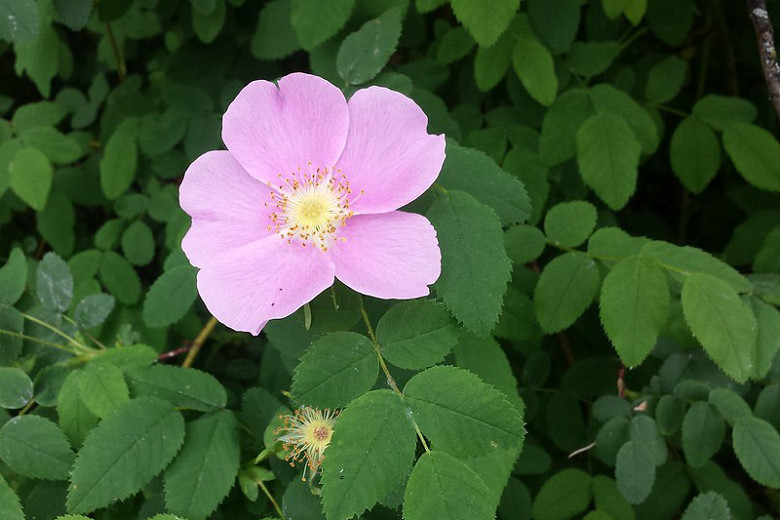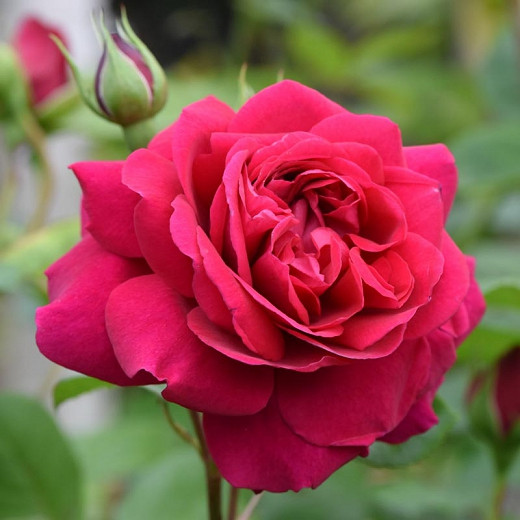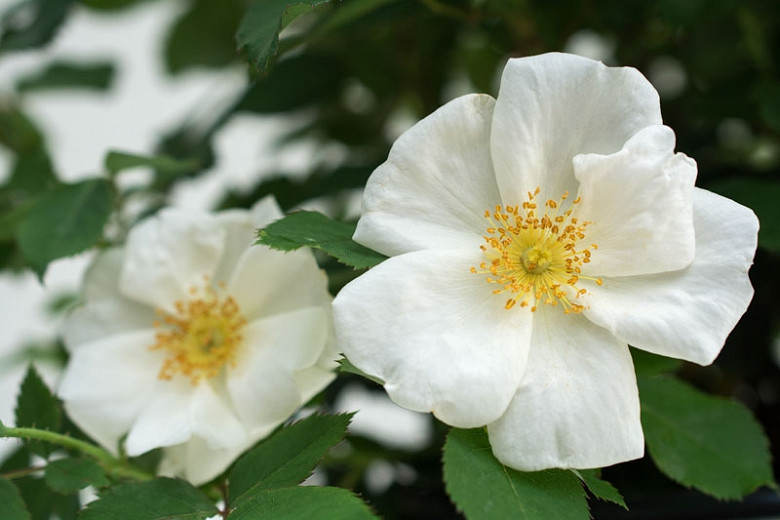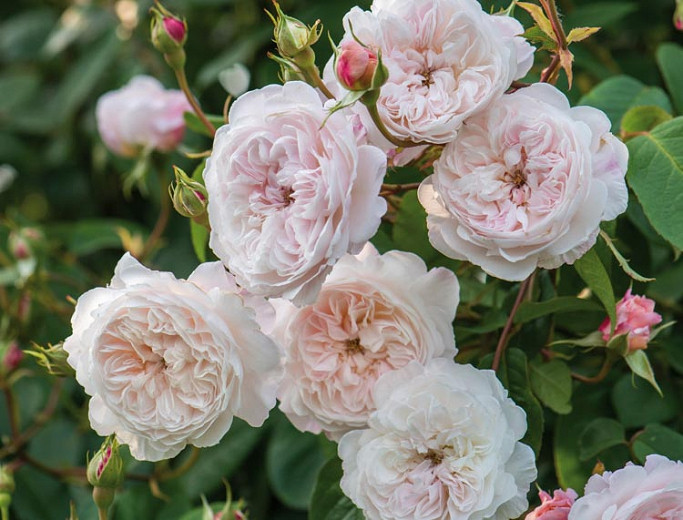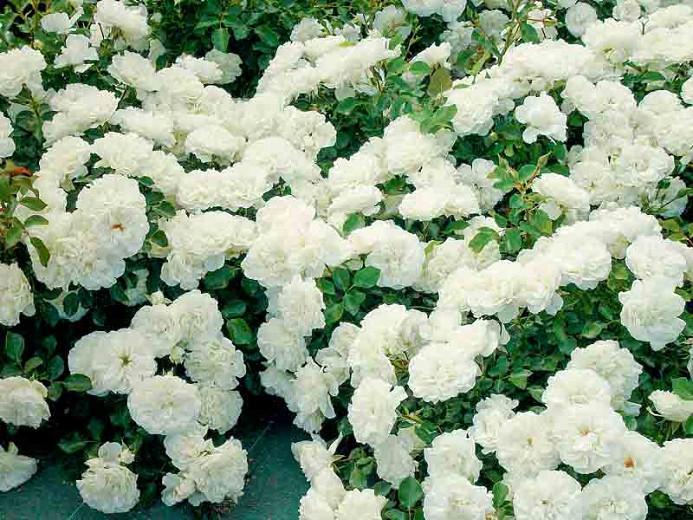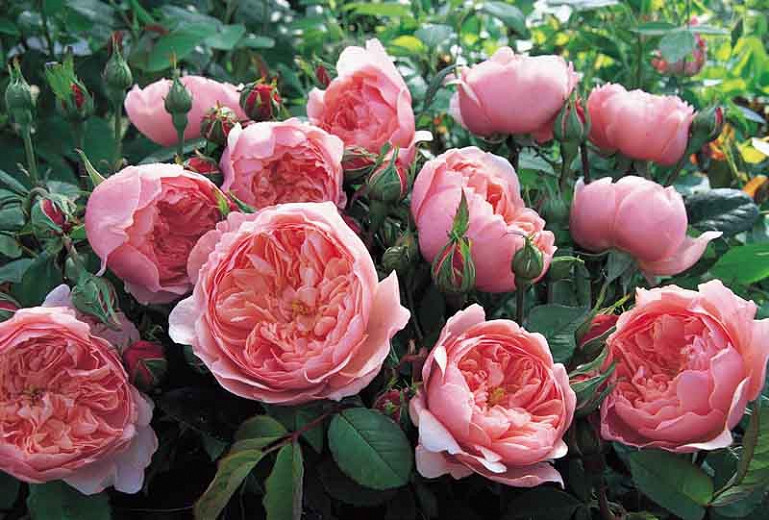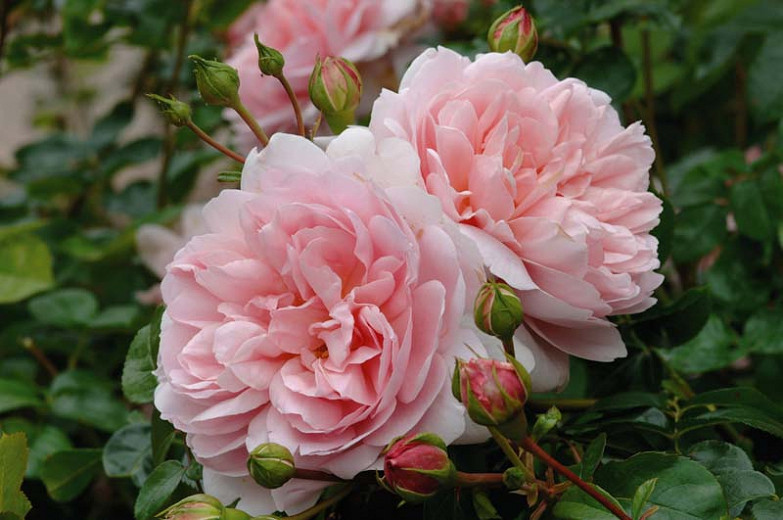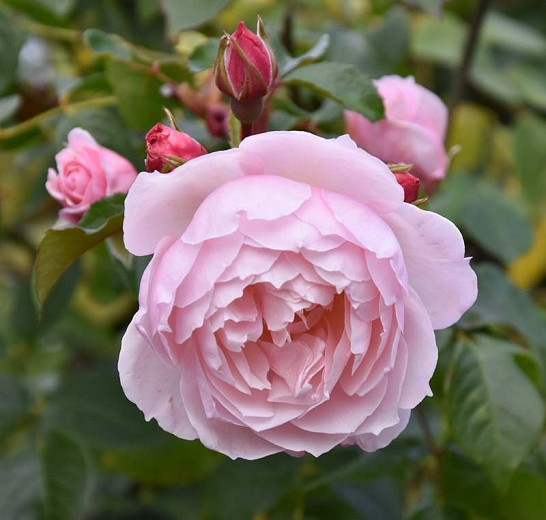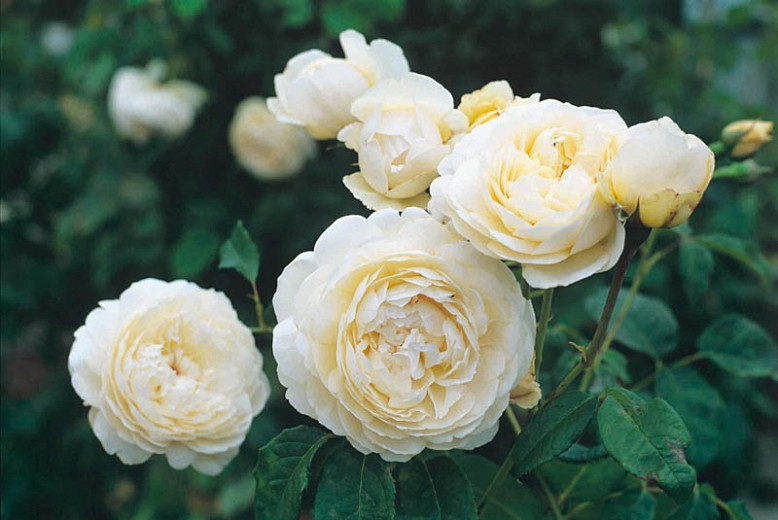Rosa nutkana (Nootka Rose)
Noted for its attractive pink blooms, and red rose hips that persist in the winter, Rosa nutkana (Nootka Rose) is a stout and erect deciduous shrub adorned with slightly arching prickly branches. They are clothed with gray-green, pinnately divided leaves, 2-4 in. long (5-10 cm), with 5-7 sharply toothed leaflets. In late spring to mid-summer, the shrub is covered with a plentiful array of fragrant, single, deep pink flowers, 2.5 in. across (6 cm), with yellow central stamens. Borne usually singly (but sometimes in pairs or triplets) at the ends of the branches, they are followed by showy, round to pear-shaped, bright red rose hips. If left on the shrub, they will persist into winter to the delight of hungry birds who will feast on the colorful hips. Nootka Rose spreads by suckering roots, as far as space and moisture permit, to form broad thickets. It is often used as a spiny hedge in a garden where it can roam freely to form a large thicket. It is valuable for stabilizing banks, especially along streams. Nootka Rose thickets are used for nesting and escape cover by birds, including waterfowl, and, small mammals.
- Grows up to 5-6 ft. tall (150-180 cm) and 3-4 ft. wide (90-120 cm).
- Best grown in full sun to part shade, in moist to dry, well-drained soils. Rosa nutkana tolerates sand, clay, no drainage, and seasonal flooding.
- Perfect for hedges or barriers, wildlife gardens, or cottage gardens.
- Low maintenance if planted where it can spread freely. If used in a small garden, it may require regular pruning to keep the plant from spreading. Prune in winter if needed to control the spread.
- Attractive to pollinating insects, butterflies, and birds.
- Do not remove spent flowers if you want to enjoy a beautiful crop of orange-red hips in fall and winter.
- Propagate by seed or offsets. Seeds removed from dried hips germinate slowly. Small offsets from the parent root transplant well.
- Native from Alaska to Northern California and eastward to the Rockies.
Requirements
| Hardiness | 5 – 9 |
|---|---|
| Heat Zones | 1 – 9 |
| Climate Zones | 1, 1A, 1B, 2, 2A, 2B, 3, 3A, 3B, 4, 5, 6, 7, 8, 9, 10, 11, 14, 15, 16, 17, 18, 19, 20, 21, A1, A2, A3 |
| Plant Type | Roses, Shrubs |
| Plant Family | Rosa – Shrub Roses, Rosa – Roses |
| Exposure | Full Sun, Partial Sun |
| Season of Interest | Spring (Late)Summer (Early,Mid)Fall |
| Height | 5' – 6' (150cm – 180cm) |
| Spread | 3' – 4' (90cm – 120cm) |
| Spacing | 48″ (120cm) |
| Water Needs | Low, Average |
| Maintenance | Low, Average |
| Soil Type | Chalk, Clay, Loam, Sand |
| Soil pH | Acid, Alkaline, Neutral |
| Soil Drainage | Moist but Well-Drained, Well-Drained |
| Characteristics | Fragrant, Showy, Fruit & Berries |
| Native Plants | United States, Alaska, California, Pacific Northwest, Idaho, Oregon, Washington, Rocky Mountains, Colorado, Montana, Utah, Wyoming, Southwest, Nevada |
| Attracts | Birds, Butterflies |
| Garden Uses | Hedges and Screens |
| Garden Styles | Informal and Cottage, Prairie and Meadow |
